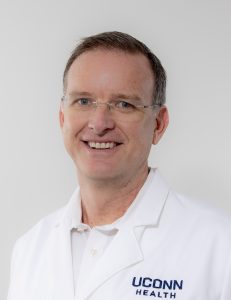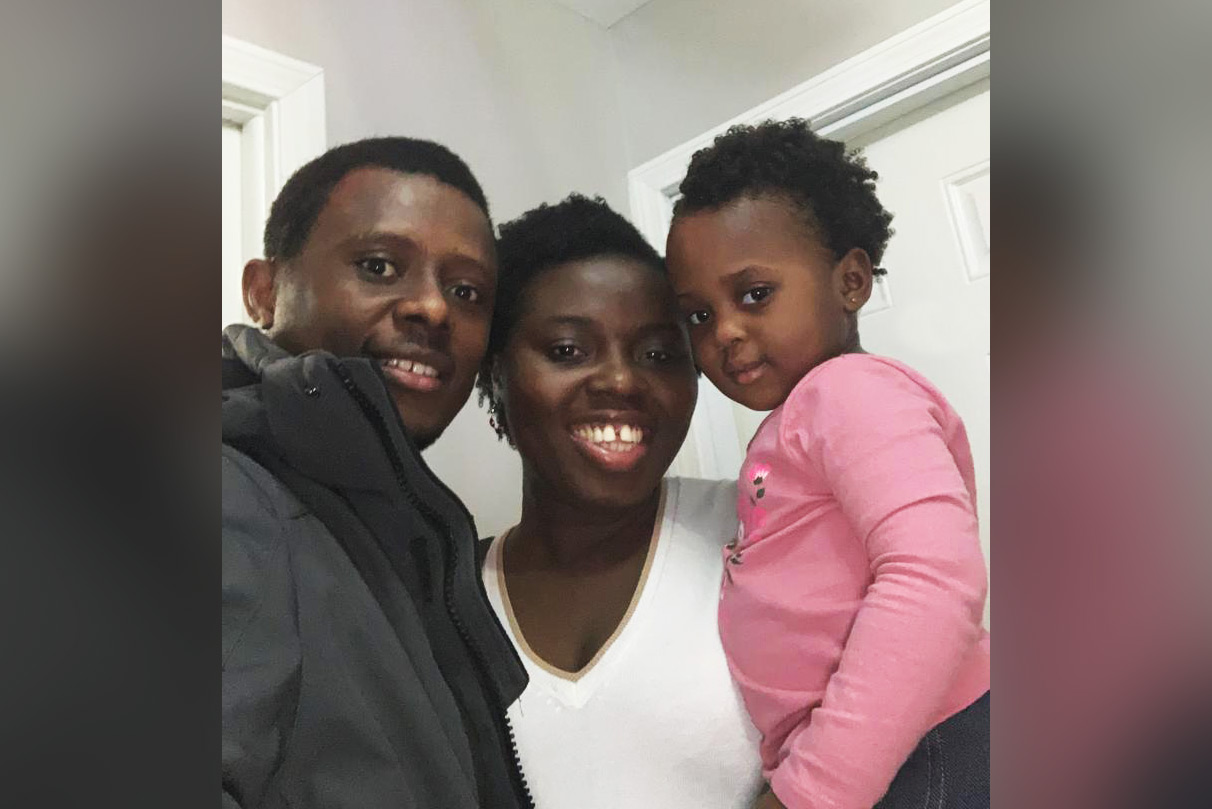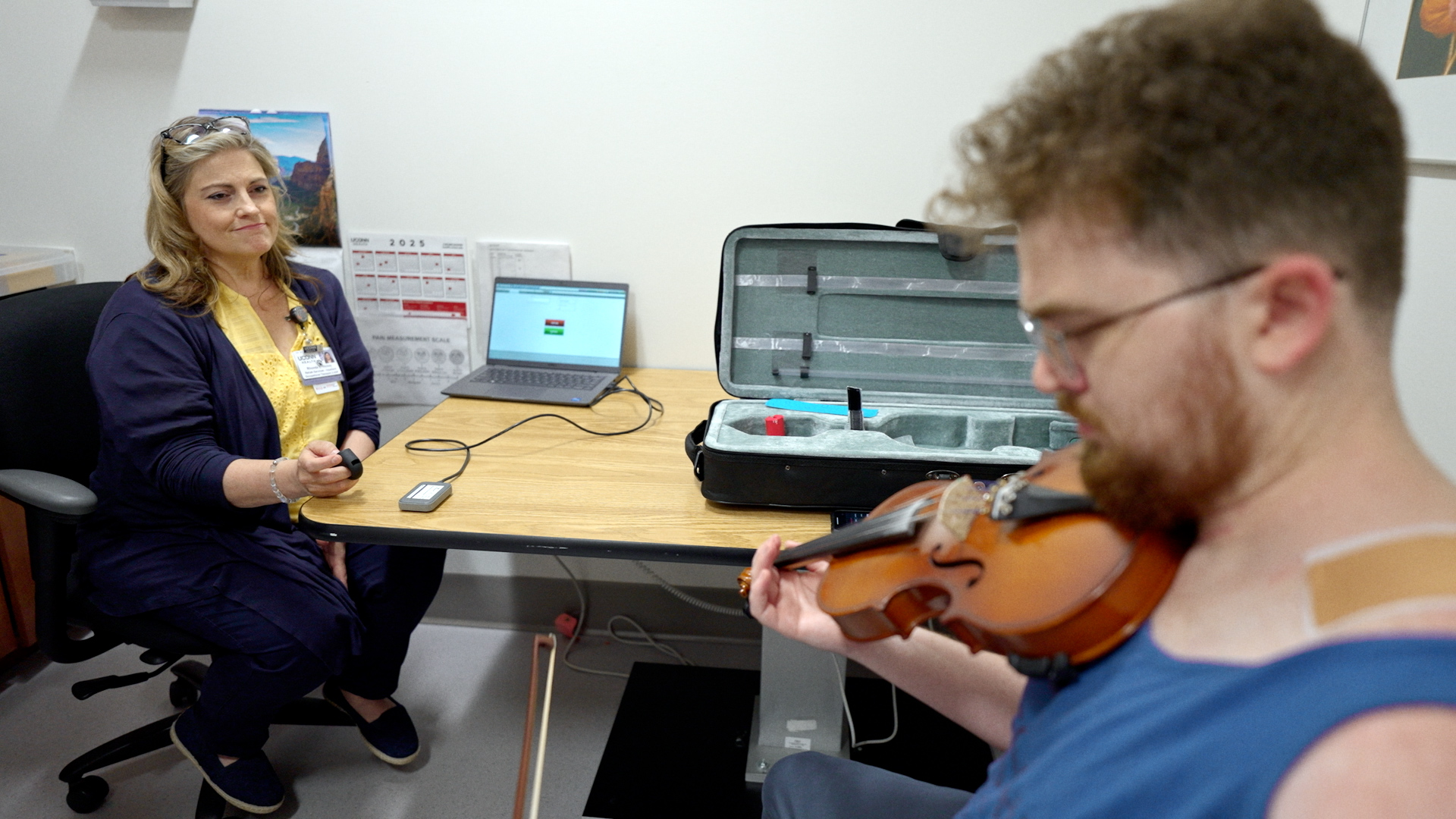Since her daughter’s arrival three years ago Semeda Amegashie, 33, of New Britain, experienced heart palpitations once in a while. She chalked up the infrequent episodes to stress.
But recently during the start of her second pregnancy, now expecting a son, her heart issue progressed and became more serious.
“I had my scariest heart episode ever. My pounding heart woke me up from a sound sleep just after midnight and it lasted until the morning. The movement in my chest was as if my heart was trying to get out of me. It was very scary, and even scared my husband,” says Semeda, who was drenched in sweat until the sun came up, when her heart finally stopped pounding.

Semeda’s primary care physician at UConn Health, Dr. David Ozimek had connected her to Dr. Christopher Pickett, co-director of the Heart Rhythm Program at the Pat and Jim Calhoun Cardiology Center. “I felt I was in good hands immediately,” says Semeda. “And it turns out I’m extra electric!”
Pickett discovered that Semeda was born with extra electrical pathways in her heart, a condition called Wolff-Parkinson-White Syndrome, which had the potential to be dangerous, even life-threatening. To correct the abnormal heart rhythms she was experiencing, Semeda ultimately needed a heart procedure called an supraventricular tachycardia (SVT) ablation.
But Semeda is pregnant and expecting her son to be born in May. Traditionally, these invasive procedures require guidance with x-ray fluoroscopy, which involves radiation that can be harmful to a fetus.
Thankfully Pickett and the Calhoun Cardiology Center now have innovative technology in place to perform heart procedures free of radiation in high-risk patients, even pregnant women, inside the Electrophysiology (EP) Lab at UConn Health.
To innovatively solve Semeda’s heart condition during her early pregnancy, Pickett moved fast. In the EP Lab, first Pickett mapped the electrical pathways of her heart, and then moved forward with the no-fluoroscopy, minimally invasive procedure to ablate or zap them to permanently diffuse the extra electrical currents, preventing them from causing her any future heart havoc.
Now, just weeks post-procedure, Semeda is very pleased.
“I feel good, but of course a little tired due to the pregnancy. Now I no longer have to worry or be scared of my fast heart-racing episodes,” she says. “Now my only focus is pacing myself, and preparing to become a mom-to-be of two.”
Reflecting on her experience, Semeda says it has particular resonance during this holiday season.
“2020 hasn’t been an easy year for us, or anyone, due to the virus. This successful, safe heart procedure during the middle of the COVID-19 pandemic and while being pregnant is allowing our family a way to be extra thankful, and celebrate this Thanksgiving even while staying home with just us,” she says.
She adds: “I hope my success story can give a little light to others during the darkness of this pandemic, and share a little bit of hope and happiness for the holidays.”
Pickett couldn’t agree more, and shares the success with his entire EP Lab team who made this possible.
“Even as recently as last year, without these new techniques of radiation-free procedures, it would have been enormously difficult to safely treat Semeda’s condition while pregnant. I am very thankful that, along with our EP Lab team, we were able to share a radiation-free, safe procedure and positive outcome for Semeda, her heart, and beautiful growing family,” says Pickett.



